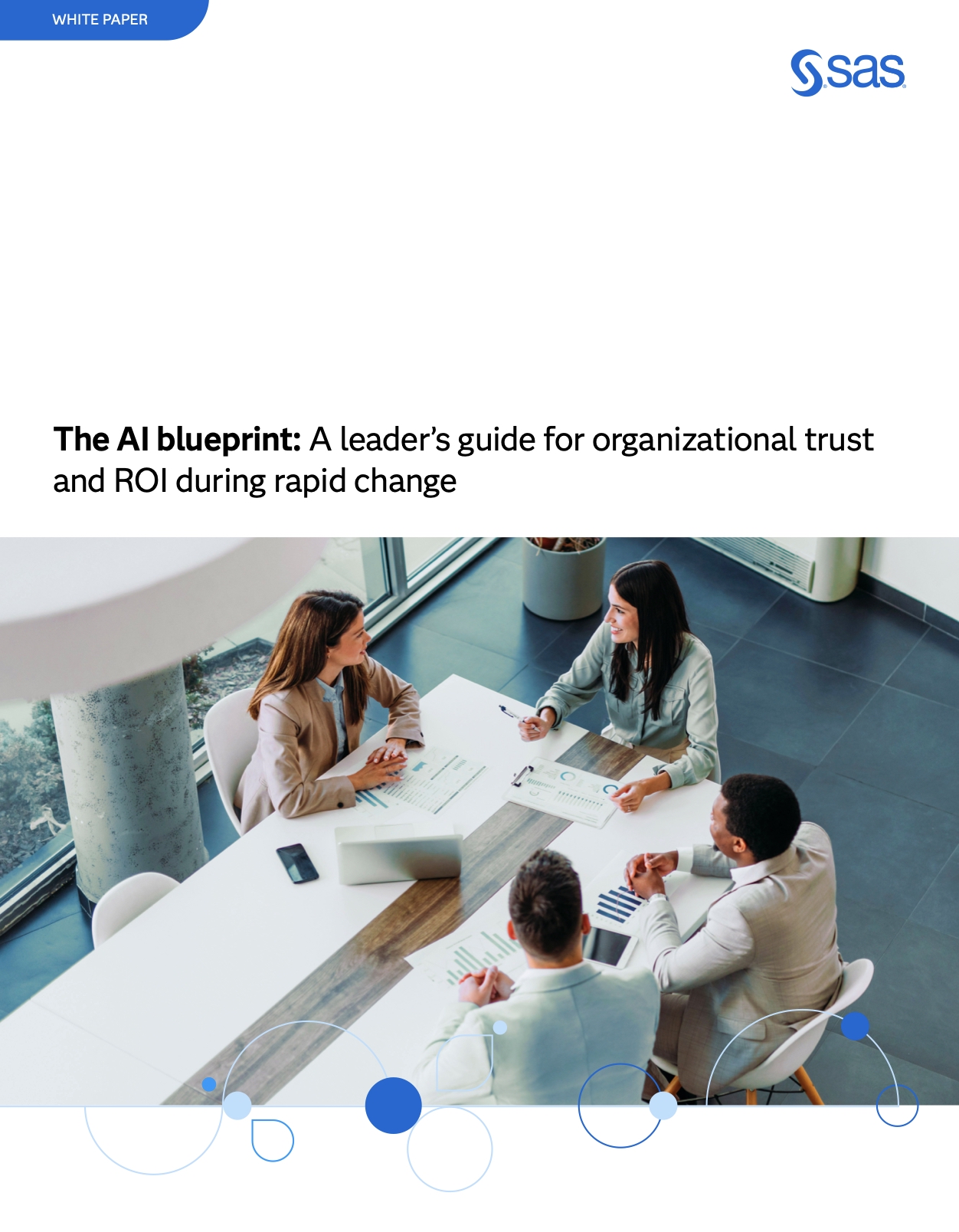A new report from MIT estimates 95% of AI projects will fail. That’s staggering. Corporate GenAI pilots are failing to deliver significant revenue growth or measurable impact.
The primary issues are not the quality of AI models, but a “learning gap” and flawed enterprise integration.
Recent findings from the SAS GenAI study also revealed that only 16% of survey respondents approached AI strategically, integrating governance, transparency and trust from the outset and almost half of the respondents were scrambling with their AI initiatives.
Organizations are incorrectly allocating resources. More than half of AI budgets go to sales and marketing for efficiency gains, while the greatest return on investment (ROI) comes from back-office automation. Generic GenAI tools like ChatGPT often fail in enterprise settings because they don’t adapt to specific organizational workflows.
Another interesting finding from MIT is that organizations purchasing specialized AI tools from vendors and forming partnerships succeed about 67% of the time. In contrast, attempts to build proprietary AI systems internally succeed only about one-third of the time. MIT notes this is particularly relevant for highly regulated industries.
Despite all these challenges and 5% of AI projects being successful, leaders push forward with AI implementations without a plan while seeking greater productivity, lower costs and modernized operations.
The need for a strategic guide
Using an AI blueprint, leaders can avoid the tragic collision of lofty vision, failed integration and mounting costs. The blueprint acts as a strategic guide to align technology while outlining the groundwork in building infrastructure, applying AI thoughtfully across people, processes and technology.
The AI blueprint: A leader's guide for organizational trust and ROI during rapid change
Building blocks for scalable, trusted AI
A robust AI strategy integrates several key interconnected components and foundational principles to ensure comprehensive and responsible AI implementation.
At the heart of the AI blueprint are three interlocking principles: productivity, performance and trust. These serve as guiding outcomes that each foundational element must contribute to. Productivity ensures AI delivers efficiency gains. Performance ensures reliable and scalable execution. Trust ensures that both business and societal stakeholders accept and support AI deployment.
Flexible, scalable technology infrastructure
A robust AI blueprint demands a technology infrastructure that is flexible and scalable for tomorrow’s innovations, designed to be inherently scalable, secure and capable of seamless integration. This includes a strategic shift towards specialized AI-first infrastructure, recognizing the demanding computational requirements of large-scale AI models. Addressing gaps in existing infrastructure is a common challenge.
Smart AI processes
Strategic deployment of AI is achieved through implementing smart processes that ensure initiatives deliver tangible business results, measure impact effectively and drive sustained value. This encompasses robust operational discipline through XOps for compliance and agility, which is crucial for translating AI potential into real-world impact. Organizations often struggle with fragmented AI initiatives and difficulty proving business value and ROI without these processes.
Balancing AI-driven innovation with governance requires end-to-end life cycle management through robust XOps – integrating DataOps, ModelOps and DecisionOps. For agentic AI, these disciplines, combined with AI-first infrastructure, deliver the agility, observability and control needed for real-time decisioning. Mary Osborne, Platform Product Strategy, SAS
Empowered people
AI will not and should not replace humans. People are the driving force behind the successful implementation and utilization of AI. This necessitates fostering human-AI collaboration, strategic workforce transformation and investing in skill development and an AI-ready culture through robust change management. Challenges like talent gaps, skill shortages and resistance to change and cultural inertia must be addressed.
Industry-specific applications for driving ROI
Technology advancements should be tailored to meet specific business needs and challenges. These domain-specific solutions - whether in fraud detection, ESG compliance, or customer experience - are what ultimately translate foundational AI investments into meaningful, measurable impact.
For leaders ready to embark on the latest technology, like agentic AI systems, it is key to proceed with a comprehensive strategy built around trust, ROI and adaptability to evolving market changes.
A path forward: 3 core actions for leadership success
Leaders looking to successfully navigate the AI era should immediately focus on these three core actions:
- Build an unshakeable AI foundation. Just like building a skyscraper requires a solid bedrock, AI success hinges on a solid foundation. Get your data house in order - think of it as laying down a superhighway for information that can handle today's and tomorrow's AI innovations, from agentic AI to quantum AI.
- Master the XOps processes. These are your operational manuals and quality control checks. Ensure every AI initiative delivers measurable results and adheres to compliance. Make sure your AI racecar has a pit crew and a clear rulebook.
- Believe in people. Remember, AI isn't replacing people. It's augmenting them. Focus on proactive workforce transformation by upskilling employees and fostering cross-functional AI literacy.


